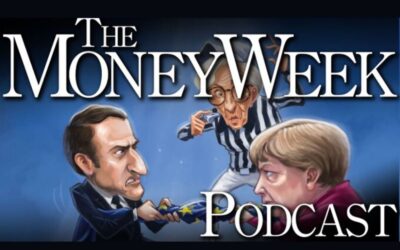24/07/20202 mins
Will unlimited money printing cause inflation?
To many, the prospect of inflation in the short-term looks unlikely. As things stand, we’re in a deflationary period due to an oversupply of consumer goods and services – airlines, retailers, and hospitality are good examples. In the UK, annual inflation was 0.6% in June, a shade higher than May’s reading (which was a four-year low), and well below the official 2% target. However, there’s a confluence of factors that could drive inflation up in the not-too-distant future.
The first factor to consider is the money injections that have been used to rescue the economy. These are nothing new, being used in the global financial crisis in 2008 as central banks expanded the size of their balance sheets through the purchase of debt. What’s different this time is that the public are also on the receiving end of the authorities’ largesse. In the UK, government spending is set to exceed £300bn by the end of this financial year. That compares to the budgeted figure of £55bn, planned before Covid-19 struck. US government borrowing has also been stratospheric, increasing the country’s budget deficit by $864bn in June alone, and on track to reach a record $3.7tr deficit in fiscal 2020. Overall, a staggering amount of new money has been created as a result of government interventions worldwide.
Fiscal and monetary easing alone would spark concern about inflation, but the pandemic has also exposed the fragility of corporate supply chains, with companies relying on goods and labour from China especially vulnerable. Simultaneously, relations between the US and China have soured, casting doubt on whether ‘phase one’ of the trade accord signed in January will be delivered. It is not just the US that is stepping back from relationships with China – earlier in July, the British government ruled that Huawei equipment should be excluded from the 5G market in the UK. If companies shift even part of their manufacturing from China, significant adjustments will be required, inevitably increasing costs which, in turn, would push the prices of finished goods up; that’s inflation.
In the longer term, there will undoubtedly be more money chasing fewer, more expensive, goods. If, and when, inflation does resurface, gold should be the inflation hedge it has traditionally been. Meanwhile, we are keeping a watchful eye on the latest developments, and those companies that can adapt and thrive the ‘new normal’.
You can find our full list of holdings here.
Please remember that past performance may not be repeated and is not a guide for future performance. The value of shares and the income from them can go down as well as up as a result of market and currency fluctuations.
Please note that SIT Savings Ltd is not authorised to provide advice to individual investors and nothing in this article should be considered to be or relied upon as constituting investment advice. If you are unsure about the suitability of an investment, you should contact your financial advisor.



